How Far Down Can You Scuba Dive? (All About Depth Limits)
Discover how deep you can scuba dive and what factors affect depth limits.
Diving into the ocean's depths is an exciting idea for many. But before you gear up and dive in, it's good to know about the limits and safety tips for deeper dives. Let's dive into how deep you can go, what affects depth limits, and how to stay safe underwater.
Certification Levels and Depth Limits
Your scuba certification affects how deep you can dive. Different levels come with set depth limits to keep you safe.
Open Water Diver Certification
The Open Water Diver certification is the basic level most beginners start with. With this certification, you can dive up to 60 feet (18 meters). This depth lets new divers explore plenty of marine life and practice skills without the higher risks of deeper water.
Advanced Open Water Diver Certification
Want to go deeper? The Advanced Open Water Diver certification allows dives up to 130 feet (40 meters). This course gives you extra training in deep diving techniques. You'll learn about underwater navigation and can choose special dives like wreck or night diving to expand your skills.
Rescue Diver and Master Scuba Diver Certifications
After the advanced level, certifications like Rescue Diver and Master Scuba Diver focus on boosting your skills and knowledge. The Rescue Diver course teaches you to handle emergencies and builds confidence. While these don't necessarily let you dive deeper, they prepare you for more challenging dive spots.
Technical Diving Certifications
For those aiming to go beyond 130 feet (40 meters), technical diving certifications are the key. Technical divers get special training to handle the added risks of deep diving. This includes learning about decompression stops and using gas mixes like trimix. Technical diving covers areas like cave diving, deep wrecks, and decompression diving, pushing past traditional recreational limits.
How Pressure Affects You Underwater
Going deeper means dealing with more pressure, which affects your body and gear.
Pressure Increases with Depth
Every 33 feet (10 meters) you go down, the pressure increases by one atmosphere. So at the surface, it's one atmosphere. At 33 feet (10 meters), it's two atmospheres, and so on. This extra pressure changes how gases behave in your body and can affect your equipment. Knowing how pressure works is key to safe diving.
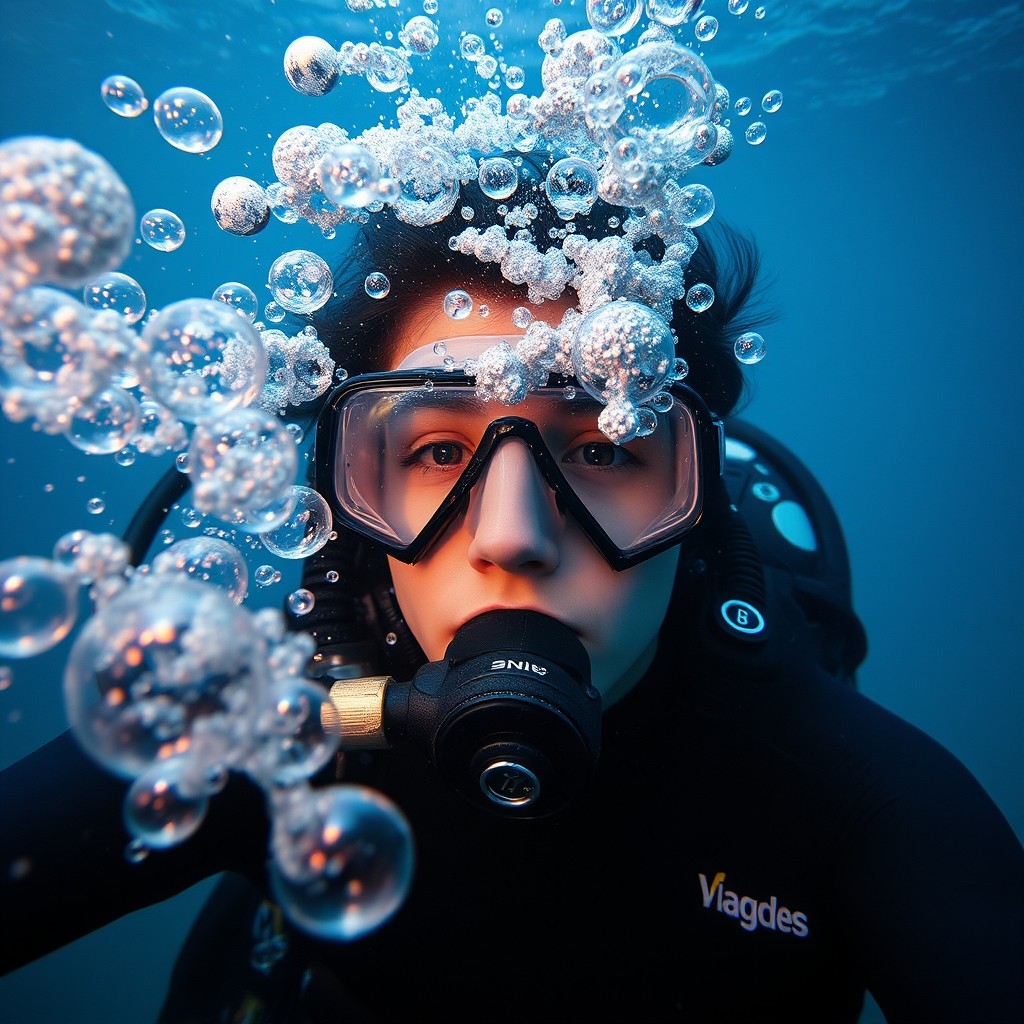
Effects on the Body
Higher pressure can cause several effects on your body:
Nitrogen Absorption: More nitrogen dissolves into your tissues the deeper you go. If you ascend too quickly, this nitrogen can form bubbles, leading to decompression sickness.
Barotrauma: This happens when pressure differences damage air spaces in your body, like your ears or sinuses. Equalizing pressure by swallowing or gently blowing while pinching your nose helps prevent this.
Breathing Challenges: Air gets denser at depth, making it harder to breathe. This can tire you out faster and use up your air supply more quickly.
Risks of Deep Diving: Nitrogen Narcosis and Decompression Sickness
Going deeper increases certain risks that need careful management.
Nitrogen Narcosis
Known as "the rapture of the deep," nitrogen narcosis affects divers usually beyond 100 feet (30 meters). The high pressure increases nitrogen in your body, leading to feelings like confusion, poor judgment, or even euphoria. Everyone experiences it differently, and it can vary each dive. Knowing the signs in yourself and others helps keep dives safe.
Dealing with Nitrogen Narcosis
If you feel symptoms, ascending to a shallower depth usually helps. Stay aware of how you feel, watch your depth, and dive within your limits to manage this risk.
Decompression Sickness
Also called "the bends," decompression sickness happens when dissolved gases form bubbles in your body during ascent. Symptoms can include joint pain, dizziness, or more severe effects like paralysis. Even within recreational depths, ascending too fast or staying down too long can cause problems.
Preventing Decompression Sickness
Plan your dive using dive tables or a dive computer to keep nitrogen levels safe. Ascend slowly, do safety stops, and avoid heavy exercise after diving.
Oxygen Toxicity
At greater depths, oxygen can become toxic, causing symptoms like vision changes or seizures. This is a concern when diving deep or using enriched air mixes. Technical divers plan gas mixes carefully to avoid this risk.
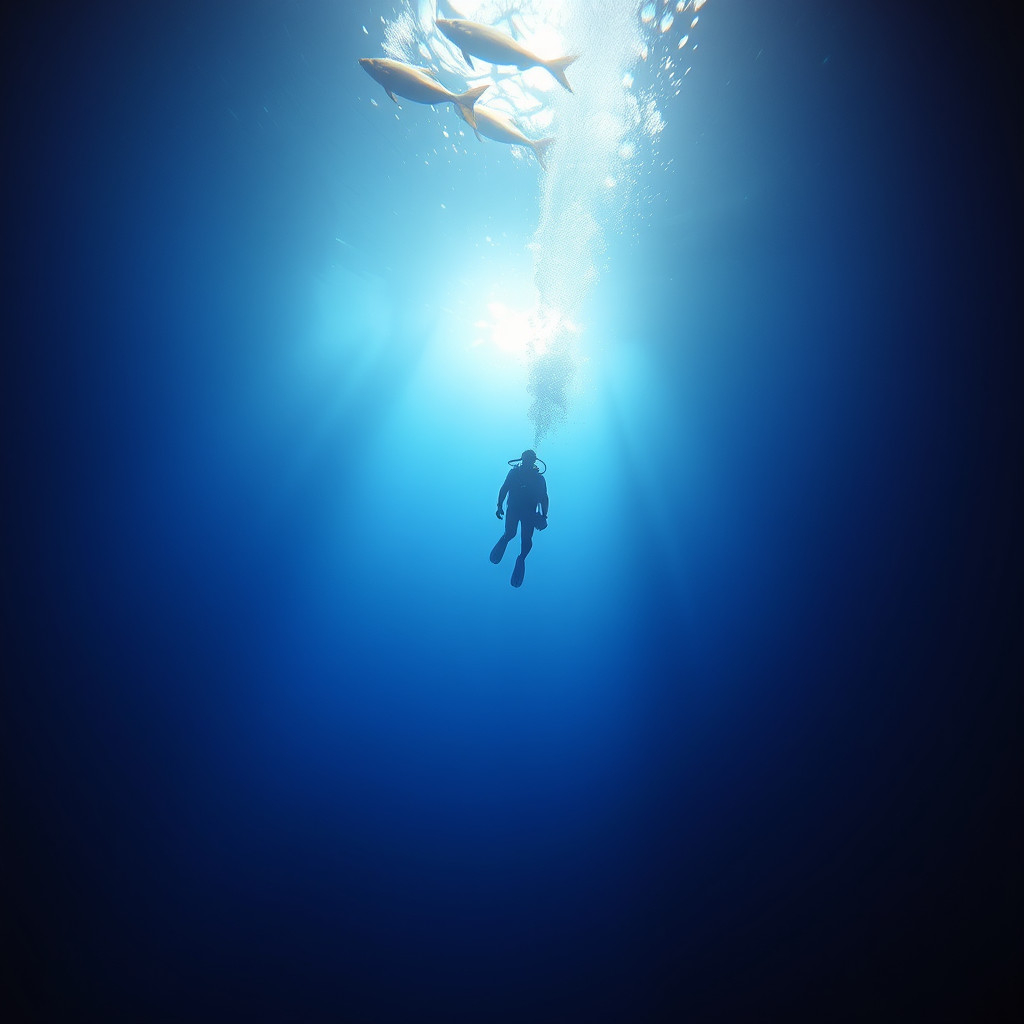
Gear for Deeper Dives
Diving deeper means you might need extra or special equipment.
Dive Computers and Depth Gauges
Keeping track of how deep you are and how long you've been down is vital. Dive computers help plan your dive and monitor things like nitrogen levels and ascent rates in real-time.
Extra Air Supplies
Carrying additional tanks, like a pony bottle or twin tanks, ensures you have enough air in case of emergencies. This backup can be crucial if your main air supply fails or you use more air than expected.
Using Mixed Gases
Technical divers often use gas mixes like nitrox, heliox, or trimix to reduce risks like nitrogen narcosis. Nitrox has more oxygen than regular air, letting you stay down longer at moderate depths. Trimix adds helium to reduce nitrogen and oxygen levels, making very deep dives safer.
Specialized Gear
For deeper or technical dives, you might use gear like reels, lift bags, or decompression buoys. You might also wear more protective suits or use different setups like sidemount configurations.
Training for Deep Diving
Proper training is essential for safe deep diving.
Deep Diving Courses
Special courses teach you about managing gases, controlling buoyancy, handling emergencies, and understanding how deep diving affects your body. These courses include both classroom learning and supervised dives.
Learning Decompression Techniques
Understanding and practicing decompression stops help prevent decompression sickness. Technical diving courses dive deeper into decompression theory, teaching you how to plan your ascent safely.
Emergency Skills
Training covers what to do if things go wrong, like running out of air or dealing with equipment failures. You'll practice skills like sharing air, using emergency gear, and problem-solving underwater.
Mental Preparation
Diving deep can be mentally tough. Building confidence through experience and training helps you stay calm and make good decisions underwater.
Environmental Factors in Deep Diving
Several environmental elements can affect your deep dives.
Temperature
It often gets colder as you go deeper. Cold water can lead to hypothermia, affecting how your body works. Wearing the right gear, like thicker wetsuits or drysuits, keeps you warm.
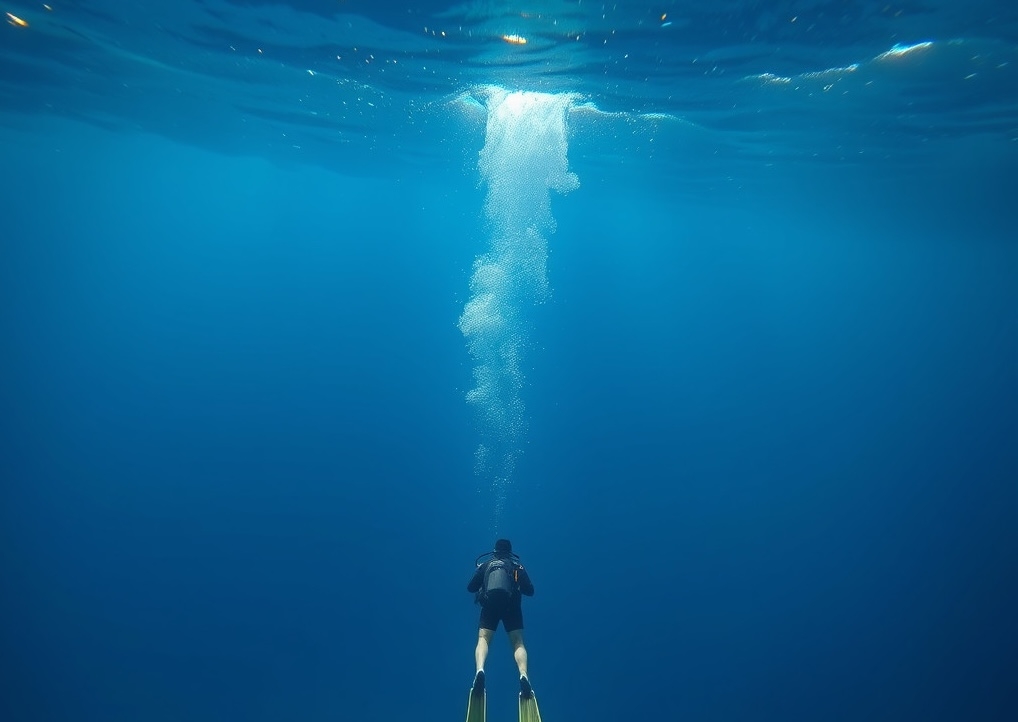
Currents
Strong currents can make dives harder. Planning dives when currents are weaker and knowing local conditions can help you avoid difficulties.
Visibility
Less light reaches deeper waters, and visibility might decrease. Poor visibility can make navigation tricky. Bringing dive lights and using good communication helps.
Marine Life
Deeper waters might have different marine creatures, some of which could be dangerous. Knowing about local wildlife and giving them space keeps both you and the animals safe.
Rules and Regulations
Some places have rules about how deep you can dive.
Local Laws
Certain dive sites or countries might have depth limits to protect divers or the environment. Always check and follow local regulations when planning your dive.
Dive Operator Guidelines
Dive shops or boats may have their own depth limits based on safety or insurance. Talk with them beforehand to know any restrictions.
Record-Breaking Dives: How Deep Have People Gone?
Some divers have set records by going to extreme depths.
World Record Dives
Ahmed Gabr holds the record for the deepest scuba dive, reaching 1,090 feet (332 meters) in 2014 in the Red Sea. Such dives require a lot of planning, special gear, and support teams.
Risks of Extreme Depths
These extreme dives come with big risks and need careful planning and training. They are far beyond regular recreational diving and not without serious dangers.
Scuba Diving vs. Freediving Depths
While scuba divers have tanks, freedivers dive on a single breath.
Freediving Records
Top freedivers have reached depths over 700 feet (213 meters) on one breath, going deeper than most scuba divers. They use methods like weighted sleds to descend and lift bags to ascend.
Different Challenges and Risks
Freediving brings different challenges, like dealing with low oxygen levels. Both scuba and freediving need specific training to handle their unique risks.
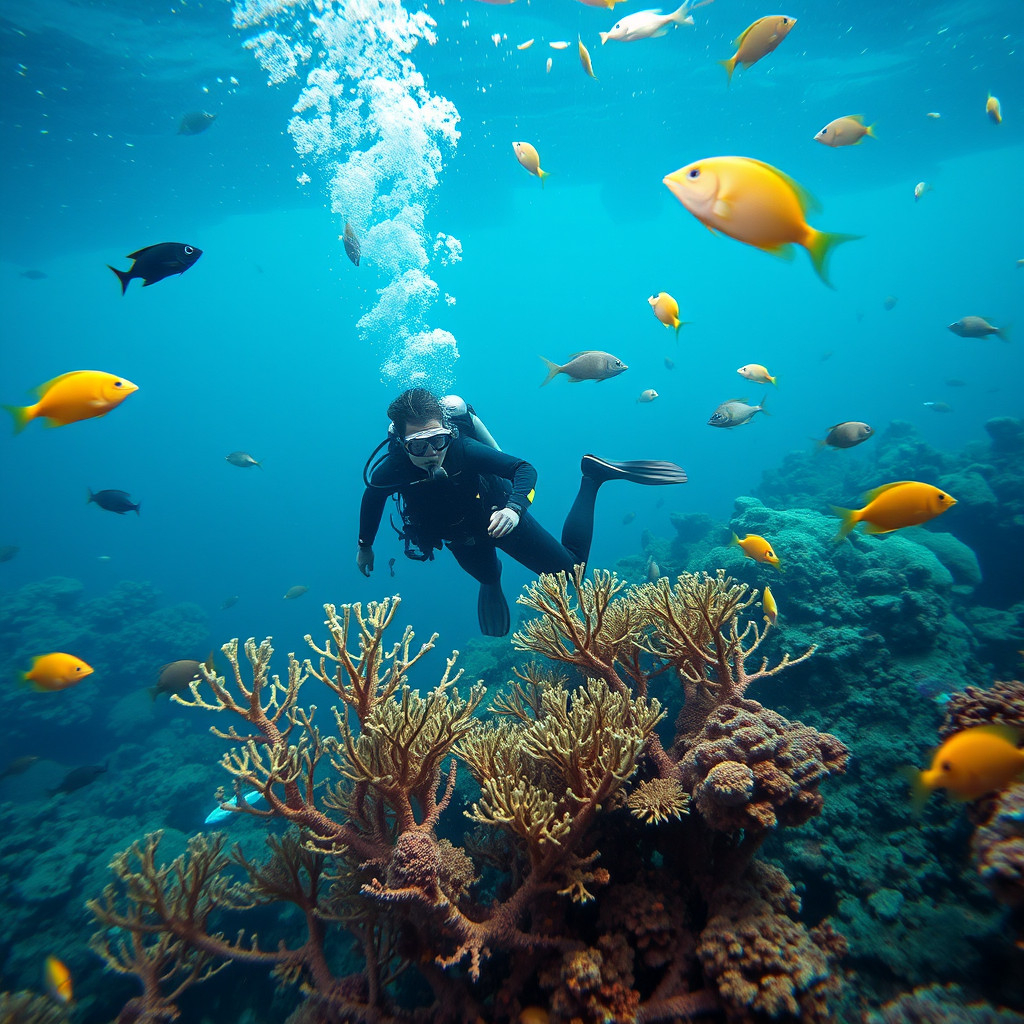
Tips for Safe Deep Diving
Thinking about diving deeper? Keep these safety tips in mind.
Get the Right Training
Always seek advanced training before going deeper. Knowledge and practice are your best tools for staying safe.
Plan Ahead
Careful planning helps manage risks. Stick to your plan and consider things like depth, how long you'll be down, and how much air you'll need.
Stay Healthy
Make sure you're fit to dive. Regular check-ups are important. Some health issues can be made worse by diving.
Dive with a Buddy
Never dive alone, especially when diving deeper. A buddy can help in emergencies and keep an eye on conditions.
Check Your Gear
Look over your equipment before each dive to make sure everything works. Regular maintenance is key.
Know Your Limits
Understand your personal limits and don't push past them. Staying within your comfort zone helps prevent dangerous situations.
Wrap-Up
Exploring the ocean's depths is an amazing experience that opens up a whole new world. How deep you can go depends on your training, experience, and how well you follow safety guidelines.
By respecting depth limits, getting proper training, and being aware of the risks, you can enjoy deep diving safely.
FAQ
What is the maximum depth for recreational scuba diving?
Recreational scuba diving usually has a maximum depth of 130 feet (40 meters). This limit helps reduce risks like nitrogen narcosis and decompression sickness.
Can I dive deeper than 130 feet with more training?
Yes, with technical diving certifications and specialized training, you can dive deeper. Technical diving involves advanced skills, procedures, and equipment to handle the added risks.
What is nitrogen narcosis, and how can I avoid it?
Nitrogen narcosis is caused by increased nitrogen in your body at depth, leading to symptoms like confusion. To avoid it, stay within recommended depth limits, ascend if you notice symptoms, and consider using special gas mixes for deep dives.
Do I need special equipment for deep diving?
For deeper dives, you might need extra gear like advanced dive computers, backup air supplies, or special gas mixes like nitrox or trimix. This equipment helps manage the added risks.
How deep can a beginner scuba diver go?
A beginner with an Open Water Diver certification can dive up to 60 feet (18 meters). This depth is considered safer for those new to diving.
What are decompression stops, and when do I need them?
Decompression stops are pauses during ascent to let your body release excess nitrogen safely. You'll need them if you exceed no-decompression limits for your dive.
Can freedivers go deeper than scuba divers?
Yes, elite freedivers have gone deeper than most scuba divers, reaching depths over 700 feet (213 meters) on one breath. However, these are highly specialized dives.
How does water temperature affect deep diving?
Water often gets colder with depth, which can lead to hypothermia. Wearing the right protective gear helps keep you warm during deep dives.
Is it safe to dive deep in strong currents?
Strong currents can make deep diving more challenging. It's important to assess conditions, plan accordingly, and have the skills to handle currents if necessary.
What health conditions can affect deep diving?
Conditions like heart problems, lung issues, or sinus blockages can impact your ability to dive safely. Always consult a medical professional if you have health concerns.
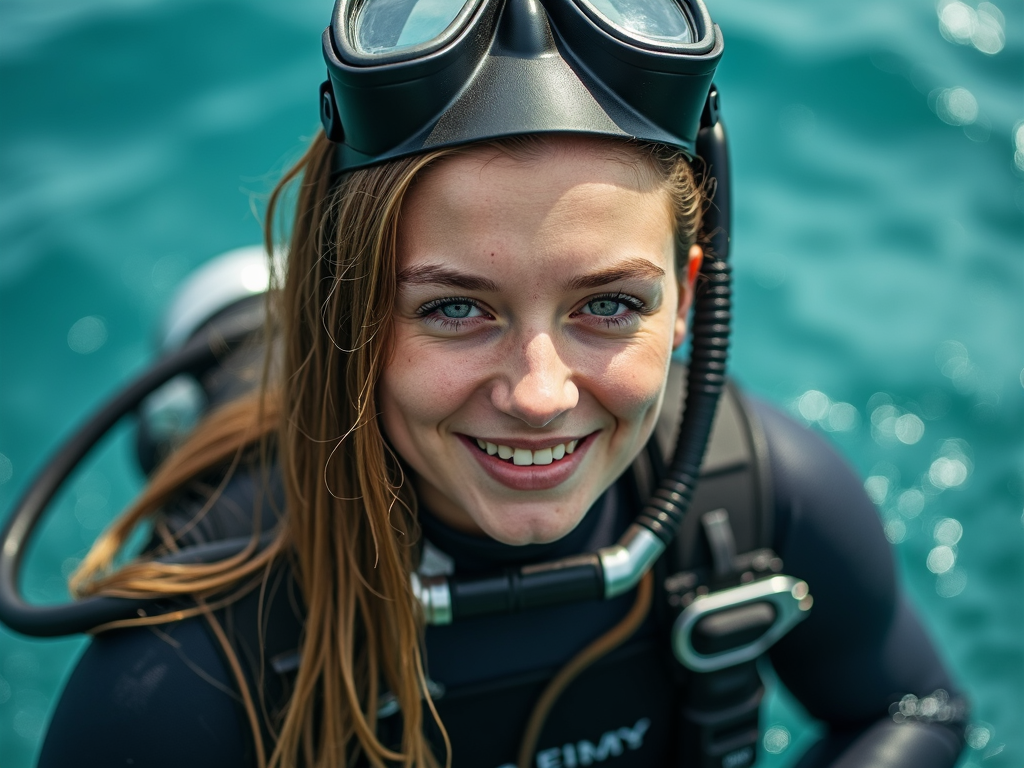
I'm a scuba enthusiast, and marine life lover. I enjoy writing about my diving adventures and sharing my knowledge with others.

I'm a passionate scuba diver and love to share my experiences with you. I enjoy writing about my experiences and sharing my knowledge with others.